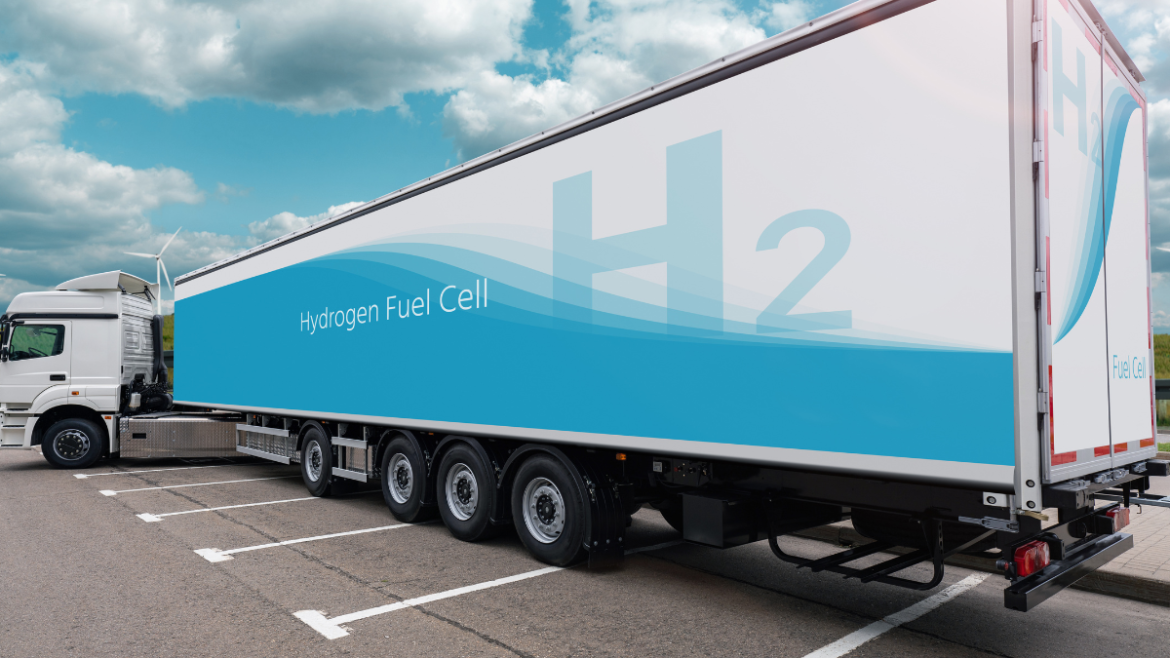Pretty soon, hydrogen fuel cell technology will be a key player in the transportation industry, and Canada is leading the charge. Earlier this year, Walmart Canada became the first major retailer to introduce hydrogen fuel cell electric semi-trucks to its fleet. In this article, we’ll aim to explain why most trucking companies in North America should soon follow in their footsteps.
How Hydrogen Fuel Cell Trucks Work
First things first: what is a hydrogen fuel cell truck? In simple terms, this is an electric vehicle that works by generating electricity via a chemical reaction between oxygen and hydrogen. Contrary to battery-electric vehicles (BEVs), which use large batteries to store electricity, a hydrogen fuel cell truck uses hydrogen gas stored in a high-pressure tank.
When hydrogen reacts with oxygen in the fuel cell, it produces electricity, heat, and water. The truck then uses this electricity to power its electric motor. The only emission created by this reaction is water vapor, which makes these trucks zero-emission vehicles.
Advantages Over Battery-Electric Vehicles
Hydrogen fuel cell trucks have several distinct advantages over BEVs. These include:
- Extended range: Hydrogen-powered trucks have a longer range than BEVs, which makes them a better fit for long-haul transportation. The average hydrogen truck can travel about 500 miles on one refuel, similar to traditional diesel trucks.
- Faster refueling: Another way hydrogen trucks are similar to conventional diesel or gasoline vehicles is their refueling time. Refueling a hydrogen fuel cell truck takes about 15-20 minutes, whereas BEVs can take several hours to fully recharge.
- Weight efficiency: Fuel cell systems in hydrogen trucks tend to be lighter than the hefty battery packs used in BEVs. This creates several advantages for hydrogen-powered trucks, including more efficient transportation and better payload capacity.
- Environmental impact: Hydrogen trucks produce no tailpipe emissions. This fact alone means that using a hydrogen truck means trucking companies can reduce their carbon footprint by an average of 106 tons of CO2 emissions per truck.
The Future of Trucking
Given the demand for alternative power sources, it’s little wonder that more and more trucking companies are looking into hydrogen trucks. In fact, these trucks likely represent the start of a broader shift toward hydrogen fuel cell technology in transportation. Hydrogen vehicles solve many limitations faced by BEVs, particularly in heavy-duty and long-haul applications.
Of course, the transportation industry isn’t lacking for new trends in general. For example, as payment options keep expanding, customer preferences continue to change as well. This is why trucking companies should work with merchant providers that offer convenient payment options like mobile payments, credit card processing, and contactless payments.

